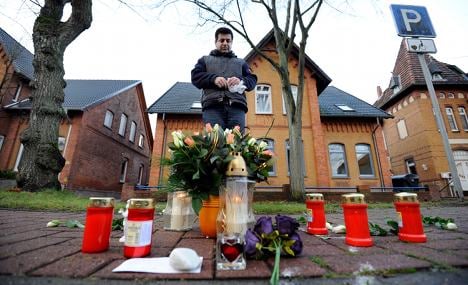Police hunting the man said he shot the girl up to six times, hitting her in the head at least once after a family mediation session with youth authorities on Monday afternoon in Stolzenau, Lower Saxony.
The girl had moved out of home due to problems within the family and was living at a state children’s home – something her father apparently wanted to reverse. Yet at the meeting with mediators, she refused to go home, police said.
He shot her shortly after the family left the office, leaving her slumped against a car in the street as he ran off.
“We wanted to initiate a conversation with the parents, in order to develop a perspective for the future,” Torsten Rötschke from the social services told Der Spiegel magazine’s website.
“There was absolutely no indication that it could come to such an escalation,” he said. “We are appalled by the incident and will now make efforts to prevent similar cases in the future.”
He said three other children still lived with the girl’s parents.
Police continued their hunt for the man on Tuesday morning using a helicopter and dogs, with a particular focus on trying to find the gun he used, which detectives say he may have thrown away. They also said he may be driving a grey VW Golf car.
An autopsy on the girl’s body was scheduled for Tuesday in Hamburg, while police have launched a murder investigation.
The family is said to have moved to Lower Saxony in 2008, from Iraq’s Kurdish region. They are said to be of the Yazidi faith – which combines elements of several faiths, including Judaism, Christianity and Islam.
The Local/DAPD/DPA/mdm



 Please whitelist us to continue reading.
Please whitelist us to continue reading.